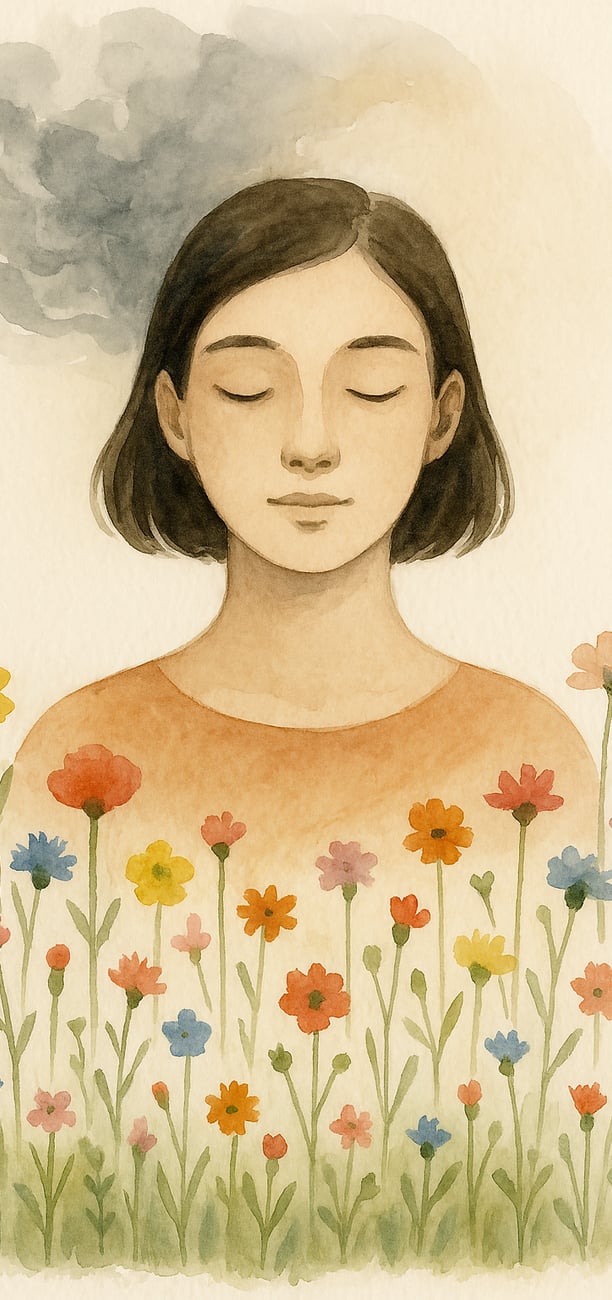From Reaction to Reverence: When Life Begins to Flow Through You
2 min read


In the modern world, it’s almost normal to live in a state of low-grade panic. We wake up to notifications, scroll through bad news before brushing our teeth, and measure our worth in unread emails, steps walked, or unread messages.
We work. We hustle. We people-please.
We carry the pressure of rising living costs, political unrest, the fear of another lockdown, and the quiet ache of unprocessed grief — all while curating a smile for the camera.
It’s no wonder so many of us feel like life is simply happening to us.
This feeling — of being constantly bombarded by demands, deadlines, and dysfunction — is not a personal failure. It is a symptom of an overwhelmed nervous system, a fractured attention span, and a disconnection from our deeper self.
In Western psychology, this state is often understood through the lens of survival mode — when the brain, shaped by trauma or chronic stress, defaults to fight, flight, freeze, or fawn. In this place, we don’t respond. We react.
We lose the spaciousness between stimulus and response. We feel stuck, small, powerless.
Eastern philosophy, particularly in traditions like Buddhism and Vedanta, offers a complementary lens:
Life, they say, is not about control — it’s about alignment.
You are not the doer of everything; you are a vessel through which life expresses itself.
When we release grasping, clinging, and fear — we begin to experience a deeper flow.
We stop clenching. We start listening.
Life moves through us, not at us.
So what shifts when we move from “life is happening to me” to “life is happening through me”?
We begin to reclaim our agency — not through force, but through presence.
We respond instead of react.
We connect with the world around us — not from panic, but from purpose.
In therapy, this often starts in the small things:
Noticing your breath when someone pushes a boundary
Choosing rest when your past self would overwork
Saying no, and not explaining why
Feeling your emotions without letting them drive your decisions
These micro-moments of awareness creates a massive shift. You stop being at the mercy of life’s chaos and start moving from an inner stillness that cannot be shaken by the external world.
Carl Jung, one of the founding voices of Western psychology, said:
“Until you make the unconscious conscious, it will direct your life and you will call it fate.”
This is the work. To meet your shadows. To sit with your wounds. To know your own mind.
In Eastern traditions, this is mirrored in the concept of self-realisation — not just becoming who you are, but remembering what you already are beneath the conditioning: peace, clarity, presence.
So how do we get there?
We begin by pausing.
By creating space between the world’s noise and our own truth.
By working with a therapist who can help us meet the unconscious with gentleness and clarity.
By unlearning the idea that we have to earn rest, worth, or love.
And slowly, life begins to shift.
You’re no longer bulldozed by other people’s needs.
You’re no longer a puppet to perfectionism or people-pleasing.
You are aware.
You are anchored.
You are becoming someone who holds themselves — and others — with integrity and care.
In a world that rewards speed, choosing stillness is revolutionary.
In a world that thrives on reaction, choosing awareness is sacred.
And in a world where life can often feel like it’s happening to you —
it is an act of liberation to become the vessel through which life flows.
Unfolding
Unfolding and becoming all the time...
© 2025. Lushani De Silva. All rights reserved.